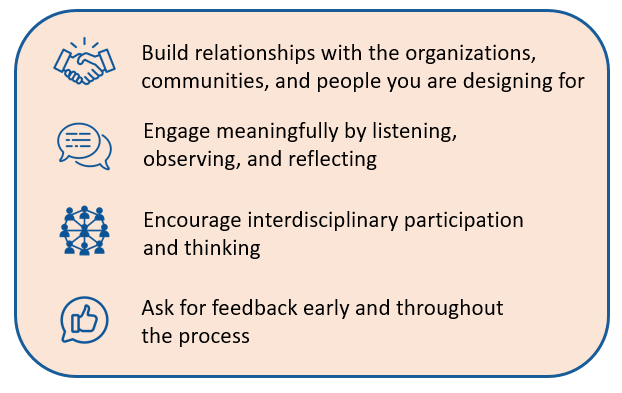The Research and Education to support the Science of Independent Living for Inclusion and Engagement: National Center of Excellence Rehabilitation Research and Training Center (RESILIENCE RRTC) at the Johns Hopkins School of Nursing is a national center funded by the National Institute on Disability, Independent Living, and Rehabilitation Research (NIDILRR).
The Center’s Mission
The Center’s mission is to improve the health and function of people with disabilities and their caregivers by adapting and scaling two award winning evidence-based programs for children and older adults with disabilities (Chicago Parent Program and CAPABLE>); and to design new approaches using key attributes of effective and sustainable programs to ensure program effectiveness, relevance, utility, and scalability.
Key Center Initiatives:
Testing new ways of delivering the Chicago Parent Program and CAPABLE—two well established and evidence-based research programs
Developing and testing a new program for caregivers who themselves have physical or sensory disabilities
Disseminating findings by influencing policy and offering plain-language fact sheets that can be distributed to health care organizations and the community.
Center Approach: Society to Cells Resilience Framework
In designing ways for people with disabilities and their caregivers to fully participate in the community, this Center utilizes the Society to Cells Resilience Framework and Human-Centered Design to build on inherent strengths rather than only addressing deficits and stressors.
The RESILIENCE RRTC uses the Society to Cells Resilience Framework (Szanton & Gill, 2010). This framework posits that society, community, family, and individual factors can promote resilience. In the Resilience Framework, individuals, families and communities can develop increased capacity through a particular challenge or life situation (such as caregiving) that they can later generalize and apply in other situations. Just as there are particularly vulnerable periods, our resilience framework posits that there are particularly resilient or “plastic” periods for individuals and families. People in certain phases of life are more likely to develop new habits or take in important information, for example caring for a family member with disabilities.
Reference:
Szanton, S. L., & Gill, J. M. (2010). Facilitating Resilience Using a Society-to-Cells Framework. Advances in Nursing Science, 33(4), 329-343. doi:10.1097/ans.0b013e3181fb2ea2
Human-Centered Design
Human-centered design (HCD) mindsets and methods are used throughout the research projects lifecycle and to build sustainability into the outputs. Human-centered design is explicitly based on the premise that lived experience is a valuable form of expertise and therefore, people who have direct experience with a disability or health condition and its broader impact on daily life should play a decision-making role in the design of services, products, and approaches to improve their health and wellbeing.
